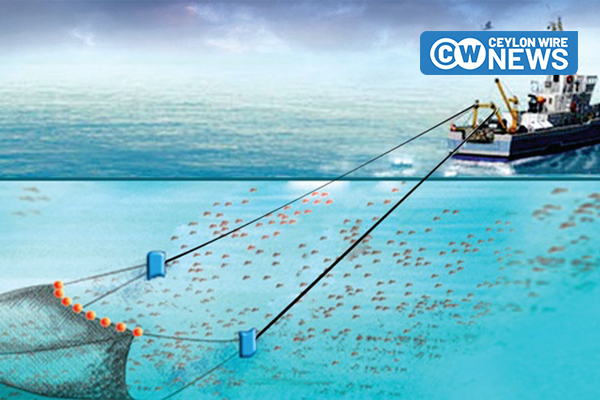Indian bottom trawlers engaged in Illegal, Unreported, and Unregulated (IUU) fishing have strained bilateral relations between the two countries. Poaching persists in the Palk Bay and Gulf of Mannar, areas renowned for their rich biological diversity, housing almost 20 percent of Indian Ocean species, including economically significant marine life such as shrimp, sea cucumber, conch, and pearl oyster.
A previous communication to the Indian Minister highlighted that over 1,000 Indian trawlers, mainly from Tamil Nadu regions like Ramanathapuram, Puthukodai, Nagapatnam, and Karaikal, cross the International Maritime Boundary Line (IMBL) in the Palk Bay and Gulf of Mannar, fishing in Sri Lankan waters and coming as close as 200 meters off the shoreline.
In bottom trawling, two heavy metal panels are fixed to the sides of the net’s mouth to scrape the seabed. Ministry sources indicate that these trawler boats scoop up thousands of tons of bycatch, mostly juvenile fish and crustaceans. When bottom trawlers are present in Sri Lankan waters, Sri Lankan fishermen in the north avoid venturing out to sea due to the risk of damage to their nets and boats, as well as the threat to their lives.
Sri Lankan fishers primarily use traditional, basic fishing methods, such as one-day Fibre Reinforced Plastic (OFRP) vessels (mostly 18-21 feet) with 8-40 horsepower engines, and cannot compete with the much larger (60-83 feet) 400 horsepower Indian vessels. The Fisheries (Regulation of Foreign Fishing Boats) Amendment Act No. 1 of 2018 grants the Sri Lanka Navy and Coast Guard the authority to arrest foreign boats and empowers the Magistrate to detain captured boats and issue suspended sentences to first-time offenders.
Fisheries Minister Douglas Devananda had earlier proposed the establishment of the Palk Bay and Gulf of Mannar Joint Marine Fisheries Resources Management Authority. This proposal was handed to Indian Prime Minister Narendra Modi in 2020, but no action was taken due to the pandemic.
According to the 1976 agreement, Sri Lankan fishermen are barred from fishing in Indian waters, including the Wadge Bank, and Indian fishermen are prohibited from fishing in Sri Lankan waters. The India-Sri Lanka Ministerial Meeting on Fisheries met three times, and the Joint Working Group (JWG) met four times, in January 2016, April and October 2017, and December 2020. Sri Lanka is now calling for the reconvening of these meetings.








